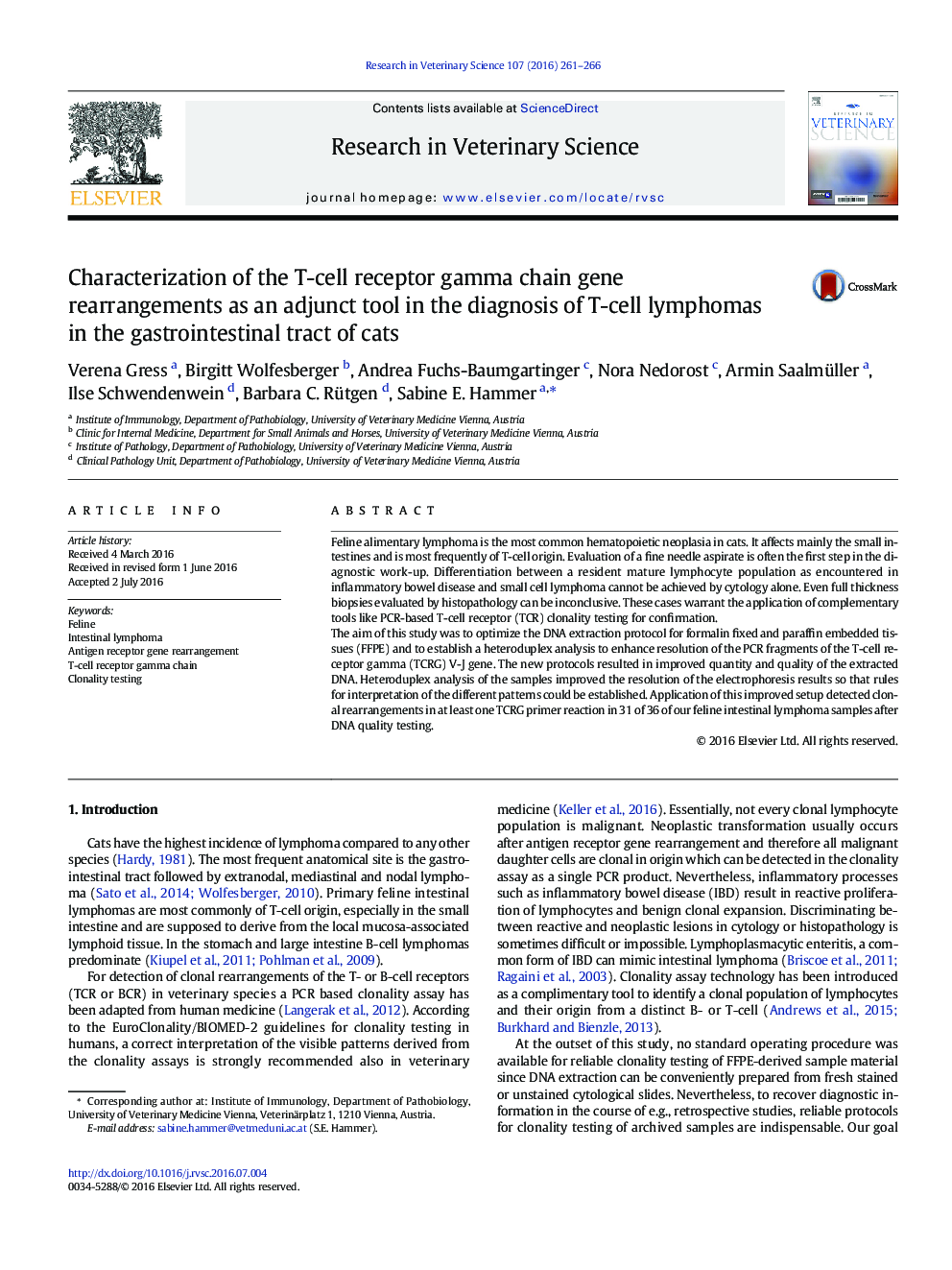| Article ID | Journal | Published Year | Pages | File Type |
|---|---|---|---|---|
| 5794433 | Research in Veterinary Science | 2016 | 6 Pages |
â¢We optimized the PCR-based clonality assay for archived material.â¢In 86% of the feline alimentary T-cell lymphomas clonality was confirmed.â¢We proposed best practice recommendations for reliable clonality testing of feline FFPE-tissue samples.â¢The PCR-based clonality assay is a sensible adjunct tool for the diagnosis of feline lymphoma.
Feline alimentary lymphoma is the most common hematopoietic neoplasia in cats. It affects mainly the small intestines and is most frequently of T-cell origin. Evaluation of a fine needle aspirate is often the first step in the diagnostic work-up. Differentiation between a resident mature lymphocyte population as encountered in inflammatory bowel disease and small cell lymphoma cannot be achieved by cytology alone. Even full thickness biopsies evaluated by histopathology can be inconclusive. These cases warrant the application of complementary tools like PCR-based T-cell receptor (TCR) clonality testing for confirmation.The aim of this study was to optimize the DNA extraction protocol for formalin fixed and paraffin embedded tissues (FFPE) and to establish a heteroduplex analysis to enhance resolution of the PCR fragments of the T-cell receptor gamma (TCRG) V-J gene. The new protocols resulted in improved quantity and quality of the extracted DNA. Heteroduplex analysis of the samples improved the resolution of the electrophoresis results so that rules for interpretation of the different patterns could be established. Application of this improved setup detected clonal rearrangements in at least one TCRG primer reaction in 31 of 36 of our feline intestinal lymphoma samples after DNA quality testing.
